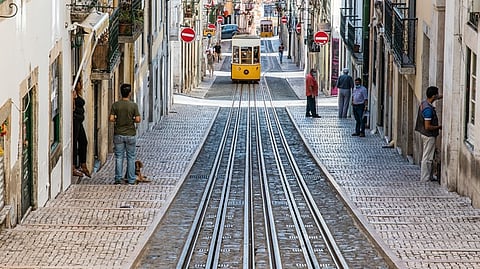Portugal’s Indian diaspora has a strong Goan flavour
Most of the permanent citizens of Indian-origin living in Portugal now are descendants of those in the former Portuguese colonies of Goa, Dam, and Diu and from the southern cities of Calicut and Kochi, with which Portugal had a thriving spice trade.
Indians also arrived in Portugal from African countries such as Kenya, Mozambique, and Angola after they became independent.
Newer Indian immigrants to the country are from Gujarat, Punjab, and Kerala. In addition, there is a hefty nonresident Indian population, mainly those working as technology professionals.
The Indian diaspora is concentrated in major cities such as Lisbon, Porto, Algarve, Coimbra, Guarda, Leiria, Odemira, and Rio Maior. Over the last 15 years, the two countries have been forging deeper ties in bilateral trade, resulting in more Indians staying, working, and settling in Portugal.
When Vasco da Gama first landed on the shores of Calicut in May 1498, he did not get a friendly reception from the Zamorin ruler at that time, chiefly because the gifts that the Portuguese explorer had brought were cheap and insignificant. As a result, he failed to sign any trade pact, and with rising hostilities displayed by the Muslim merchants, da Gama decided to return home. He, however, took back with him 5-6 Hindus from whom they could get an idea of Indian customs. This was probably the first migration of Hindus to the Iberian peninsula.
Vasco da Gama made more trips to southern India before the Portuguese finally decided to make Goa the center of their Indian trading operations. Da Gama was made the Portuguese viceroy in India in 1529.
From the 16th century onward, during the four centuries of occupation of Goa, the Portuguese were encouraged to marry among the local Goanese population. As a result, there was a considerable intermingling of culture, customs, and traditions, and Goa was a major center for Portugal after Lisbon.
Indian culture, especially that of Goa, is strongly prevalent among the Indians living in Portugal since Goa was the headquarters of Portugal’s Asian-European trade for about 400 years. The current Prime Minister of Portugal, Antonio Costa, is of Indian descent being half Goan.
Indians have mingled so well with the Portuguese nationals that about 90 percent speak Portuguese. Portugal was the first foreign nation to release a Gandhi stamp on Khadi in 2019. There is a road named after Gandhi in the municipality of Covilha, while there is a bust of his in Madeira.
The Center for Indian Studies in Lisbon educates students about India by organizing lectures on Indian art and culture while it also teaches Hindi. Associations that encourage interactions between the Indians and Portuguese are The Portugal Hindu Youth Association, Recreational and Cultural Indo-Portuguese Association, Daman-Diu, Supporters Fraternity Association, and Sura — Cultural and Ecological Movement of Goa.

